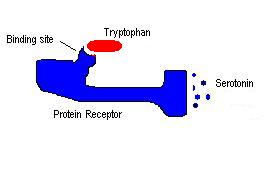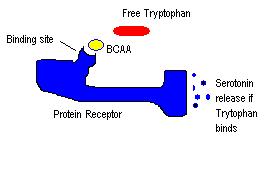What Are They?
BCAA are three essential amino acids in the human body, known as Leucine, Isoleucine and Valine. They are called essential because we are unable to synthesize them in our bodies and therefore must be ingested in our diet. These BCAA are found in protein rich foods and it is relatively easy to meet the daily recommended intake through a regular diet.
So how does supplementing additional BCAA in the diet help with sports performance? Lets have a look at their role in the body.
How Do They Work?
During prolonged aerobic exercise, the body starts to deplete muscle glycogen stores and burns Free Fatty Acids (FFA) and even protein for energy. In addition to depleting muscle energy stores, prolonged exercise also affects the nervous system and the body begins to suffer from central fatigue which makes you want to stop exercising. One mechanism of central fatigue is by the production of serotonin. Serotonin is a central nervous system depressor, meaning that you lose the drive to keep going and you just can't keep your muscles working. Serotonin is formed by the attachment of free-Tryptophan to a protein carrier in the brain. Tryptophan is the amino acid found in high concentration in protein rich foods such as turkey and it is this same reaction of free-trytophan forming serotonin that gives you the sense of fatigue after you eat those big turkey dinners over the holidays.

This is where BCAA is theorized to come in to play. With the decrease in FFA, the body can start burning BCAA and thereby decreasing their concentration in the blood. This can have a negative effect on sport performance as BCAA compete with tryptophan for the binding site on the protein molecule that leads to the formation of serotonin. You can see that if the blood has low levels of BCAA, there is no competition with tryptophan to bind to the protein carrier and that results in a large production of serotonin and therefore central fatigue. By supplementing BCAA in the diet, it is hypothesized that it will maintain a higher level of BCAA in the blood during prolonged exercise and decrease the amount of serotonin being produced resulting in less central fatigue.
Does it Really Work?
The research is still conflicting on the issue of BCAA and increased aerobic performance. Several studies have shown it to increase mental awareness following soccer games and a 30km race. It has also been shown to decrease the time to cycle 40 km by an average of 6 minutes versus a placebo of only a 1 minute decrease. Finally, BCAA supplementation showed no improvement on a group of runners completing a marathon. However, in the same study, if they looked at slow versus fast runners, the slower runners had a decrease in their marathon time with BCAA leading to the hypothesis that elite runners may have higher level of BCAA in the blood to start with and therefore did not benefit from oral supplementation as much as those who may have lower levels.
Summary
- BCAA are essential amino acids in humans and must be ingested through the diet.
- Tryptophan binding to protein carriers in the brain lead to the formation of serotonin, a central nervous system depressant leading to central fatigue.
- BCAA in the blood compete with free-tryptophan for binding to the protein carriers, potentially decreasing the amount of serotonin production during prolonged aerobic exercise.
- Several studies have shown a positive effect of BCAA supplementation on prolonged aerobic performance but there is still no solid consensus on its effectiveness.
- BCAA supplementation may be beneficial to performance and there has not been any research that shows it to have a negative effect on aerobic performance.

0 Comments:
Post a Comment
<< Home